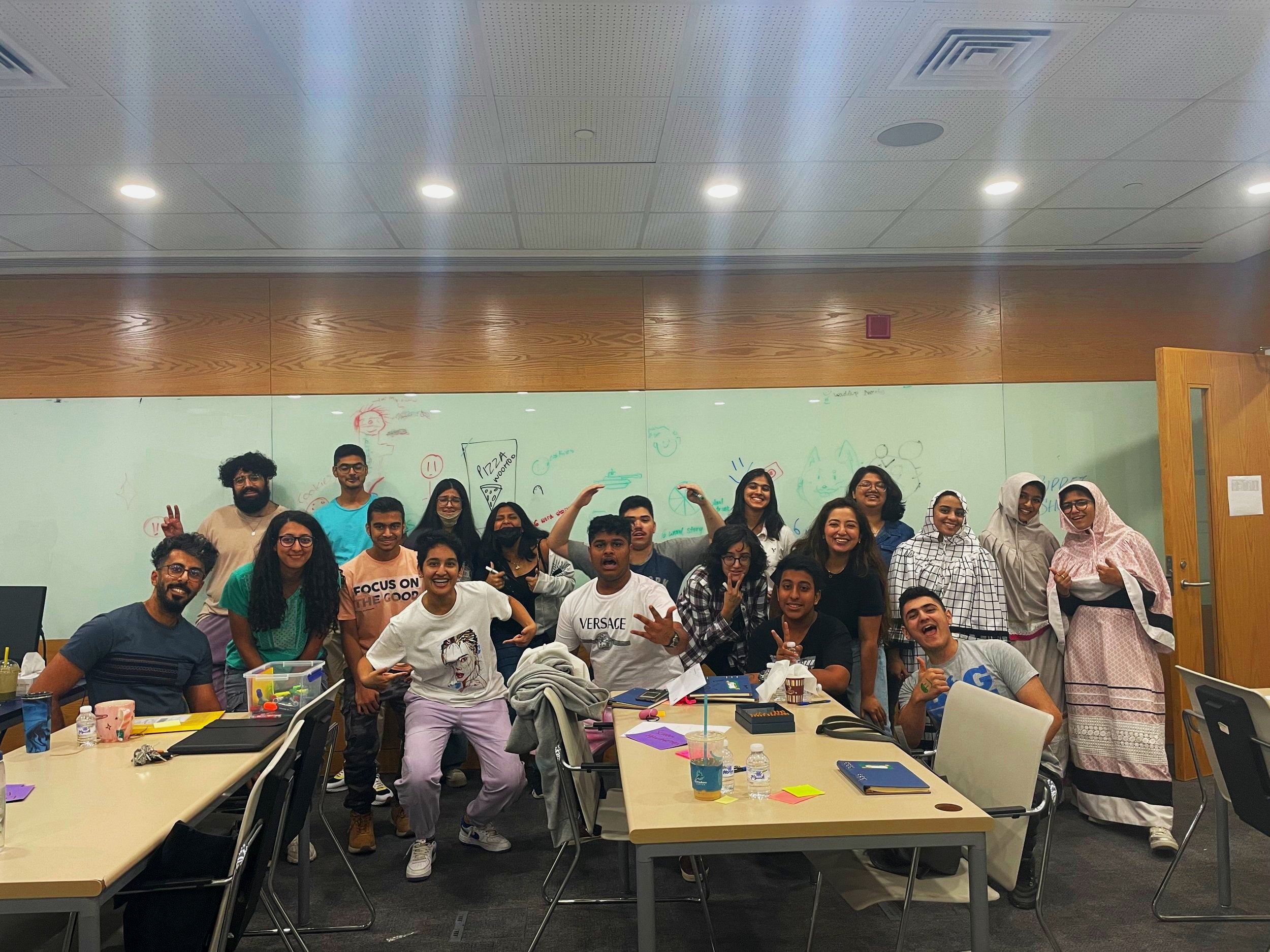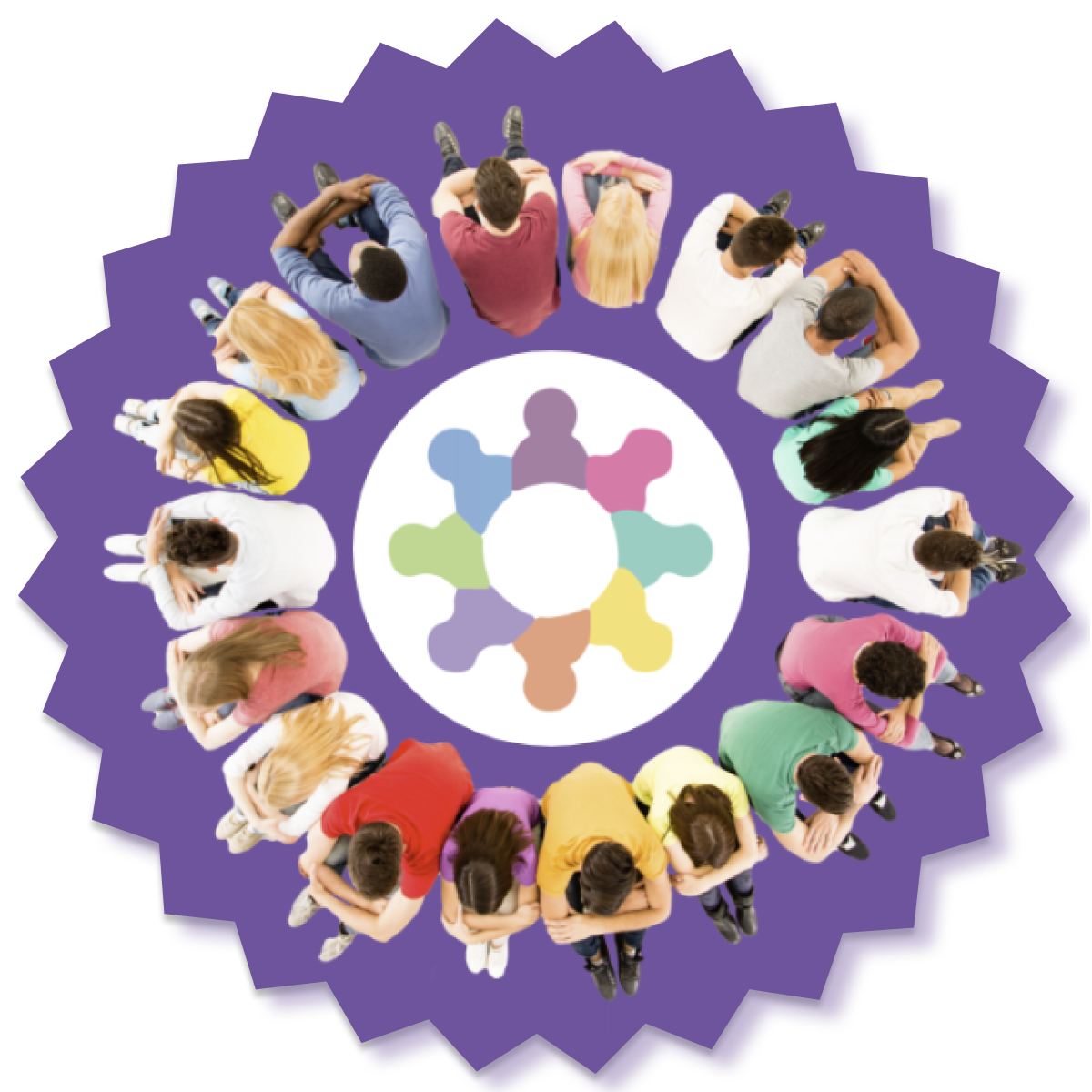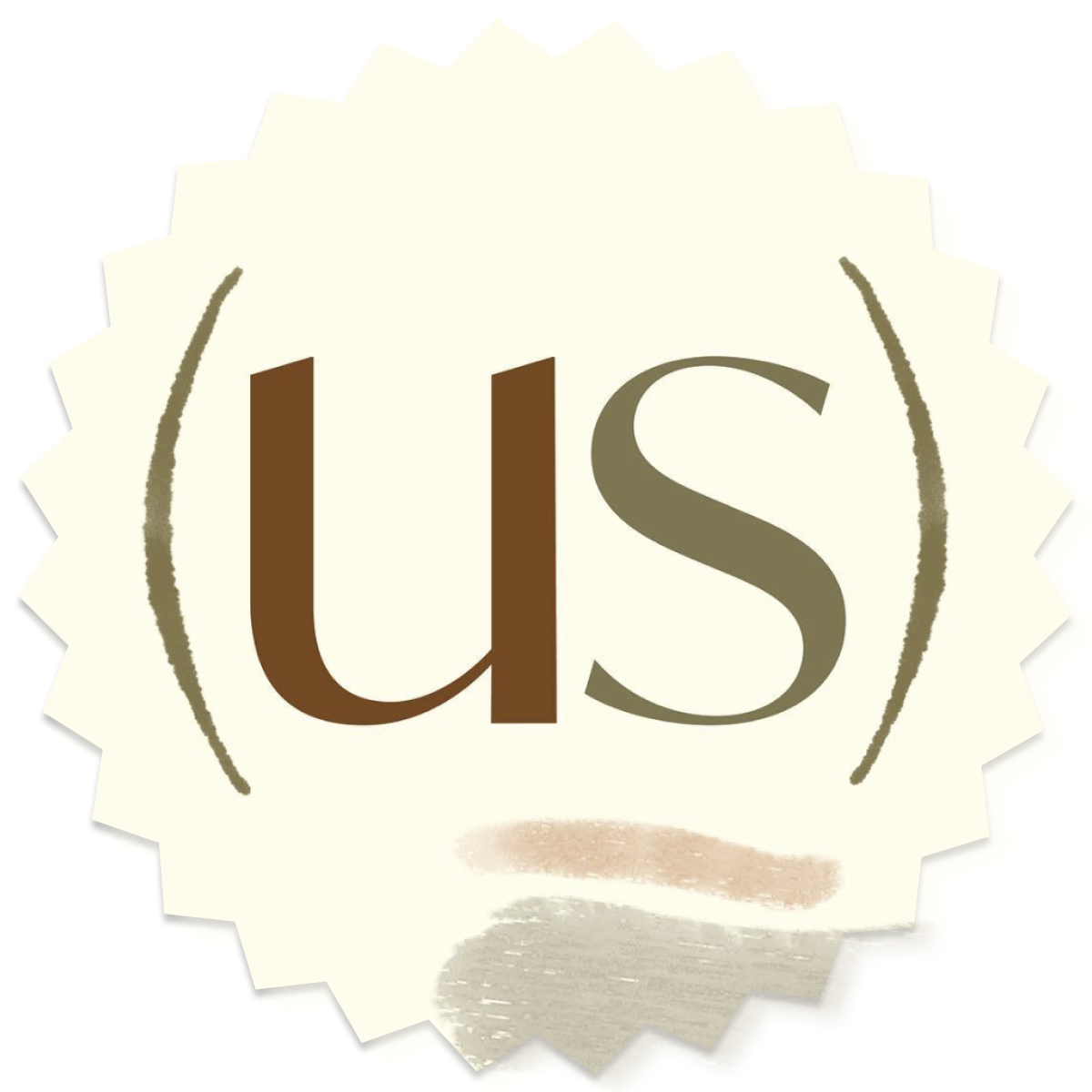
Aswatna - Finding our voice
Educating for Inclusion
Aswatna is a program developed by en.v in partnership with Data4Change and the Center for Teaching, Learning and Research (CTLR) at the Gulf University for Science and Technology (GUST), to empower students to create social change within their communities. In our work, we have found that youth often feel alienated by the educational system which they move through and therefore are consistently engaged in and curious about what else is possible. This project is an attempt to honor that curiosity by providing youth with the tools and skills we believe will allow them to reimagine what their schools and communities could look like.
Our intention is to create a space for students to engage with each other in messy, raw, playful, and affirming ways. We hope to provide participants with skills that will allow them to move through the world more critically, with more agency, and in community.
Aswatna Summit
The Aswatna Summit invites you to explore innovative, student-centered approaches that aim to foster greater inclusion and responsiveness in our schools. This two-day event will bring together educators, parents, students, and community leaders to collaborate, share insights, and exchange ideas on how to create learning environments where every student can thrive. Through interactive workshops, meaningful dialogues, creative installations, and performances, participants will collectively envision a future rooted in inclusivity and equity. Whether you're an educator seeking practical strategies, a parent invested in your child’s education, or a student eager to contribute to change, the Aswatna Summit is your opportunity to engage in this vital conversation. Join us as we celebrate the voices, ideas, and actions shaping the future of education in Kuwait. Together, we can build a more inclusive learning community. This event is bilingual and free to attend, but registration is required, and spaces are limited so we would encourage you to apply at the earliest by clicking here.
Dates: 6 & 7 February, 2025
What to Expect:
Day 1: Conference Day - Participate in thought-provoking dialogues, interactive workshops, and the immersive Aswatna Journey Installation that traces our program’s impact over the years.
Day 2: Community Day - Enjoy creative workshops, interactive installations, art therapy, food, music, and an inspiring Open Mic session to celebrate our community’s voices.
IMPORTANT UPADTE - Due to unforeseen circumstances, the Aswatna Summit scheduled for February 6–7, 2025 has been cancelled. While we are disappointed not to gather as planned, we remain committed to the vision and values behind this event and will continue working towards making available future opportunities for collaboration.
Student Training
The Aswatna youth training program is a five-week immersive training course. Participants are trained in critical & systems thinking; justice & community care; cross-cultural communication; storytelling for social change, and Participatory Action Research (PAR).
To date, we have conducted five rounds of training with 109 high school and university students from diverse education systems—including public, American, British, Indian, and bilingual schools. Our youngest participants were 14, and our eldest in their 30s. All were actively enrolled in their schools and divided into cohorts based on education level (high school or university) and language (Arabic, English, bilingual). The most recent training round concluded in December 2024.
We will share information about future opportunities as they become available. For updates, please check back here or subscribe to our newsletter.
Participatory Action Research
Throughout the youth training program, participants identify issues that move them, and then develop participatory research projects to better understand how others in the community, and in particular their peers, relate to them. Each cohort has had to come up with a number of issues or observations they have noticed or experienced in their school spaces. These observations or issues can vary in scope, depth, or form. For example, some have been related to the school's physical environment such as lack of facilities in school, or social issues such as body shaming and discrimination. These issues are then grouped thematically, and research teams created to explore the topics further by going out into the community and collecting data. To date, a total of 11 teams have conducted surveys and focus groups with 1,195 people. For more information about our participants' research findings visit our Aswatna data portal, aswatna.org.
Aswatna Ideathon
Using the data collected by the Aswatna youth training participants in the first phase of the program, we designed an Ideation workshop that took place in December 2022. Over the course of three intense days, over 80 participants - including students, educators, creatives, designers, technologists, and civil society representatives - got together to co-create pilot initiatives that could help promote more responsive, safe and inclusive schools in Kuwait. Out of the seven amazing ideas that were developed, three were selected to move into implementation.
Testimonials
Aswatna was a great opportunity for students to connect with each other outside of their schools, learn from and with local and international change-makers, build community with one another and make an impact on their education and the wider society. Here are some testimonials from our second cohort of Arabic school participants that Fateam Alali (one of the participants) very generously put together .
Pilot projects
Post Ideathon, the three teams listed below have taken their projects into the world to see if they have legs.
Nudge Club
Nudge Club is an innovative initiative designed to foster open dialogue, empathy, and collaboration between students and teachers in Indian schools across Kuwait. By providing a safe, inclusive space for both groups to engage in skill-building activities and trust-building exercises, Nudge Club aims to break down hierarchical barriers and build stronger, more compassionate classroom environments.
What began as a simple question, “what if students and teachers could connect beyond the classroom?” has evolved into a multi-layered program offering facilitated school sessions, teacher community meet-ups, and customized training for educators. Since 2022, the program has reached 9 schools, trained 10 facilitators, hosted 6 teacher meet-ups, and has engaged over 200+ students through 40+ in-school sessions. The impact has been powerful, students report feeling seen, heard, and respected, while teachers reflect on their renewed sense of purpose and deeper connections with students.
As Nudge Club transitions out of pilot phase, the team is focused on building long-term sustainability through school partnerships, a membership-based model, and an expanded curriculum. The goal: to make empathy and student agency foundational to how we teach and learn. Learn more.
Anonym(us)
Anonym(us) provides a safe space for high school and university students to share their stories of vulnerability, connect to a supportive community, empathize with different experiences, and express themselves creatively. It is both an online and offline storytelling platform that utilizes different mediums (social media, print, art, theater, workshops) to ensure inclusivity and accessibility.
Project Sidra
Project Sidra was born as a participatory research initiative to celebrate the richness and beauty of Kuwait’s cultural diversity. We set out to create tools and resources that invite people to learn about the many nationalities and demographic profiles that make up Kuwait’s shared culture and history—and to explore how these communities contribute to one another’s sense of belonging and flourishing. This led to the development of two interconnected components:
A qualitative and quantitative study exploring what it means to feel at home in Kuwait.
The Sidra Game, an interactive experience built from the research, where players engage with role-play, dilemmas, and thought-provoking challenges that open up dialogue around identity and socio-cultural belonging.
Teacher Training
As part of the latest phase of the Aswatna program, we have developed a comprehensive teacher training workshop aimed at benefiting public school educators. This workshop, coupled with its corresponding toolkit, is designed to empower teachers by enabling them to incorporate the tools and pedagogies that have successfully shaped and structured our own curriculum. The key components of our teacher training workshop include:
Introduction to Facilitation vs Teaching
Implementation of Design Methods for Participatory Learning
Strategies for Inclusive, Differentiated, and Multidisciplinary Classrooms
Utilization of Tools for Collaborative Design Lab
Step-by-step Guidance for Designing Workshops
Throughout the program, we were pleasantly surprised by the effectiveness of the curriculum with public school students. With these teacher training sessions, our objective is to extend this impact to a larger number of students. By collaborating with teachers from all 5 governorates, we aim to meet students where they are, rather than solely waiting for them to come to us.
What is the ethos of the program?
Messy: We believe that learning doesn't happen without discomfort. We want to prepare participants to learn in ways that may be new, difficult, and uncomfortable for them.
Raw: We'll be moving through subjects that will likely feel personal to participants so we ask that folks come into the space prepared to be open and vulnerable with each other.
Playful: We want to encourage participants to be experimental, curious, and light. This isn't to say the work won't be heavy but that we will try our best to move through heavy work with humility and joy.
Affirming: We firmly believe that nobody is disposable and therefore we seek to create a space where everyone feels supported and cared for no matter their background or where they are at in their learning.






